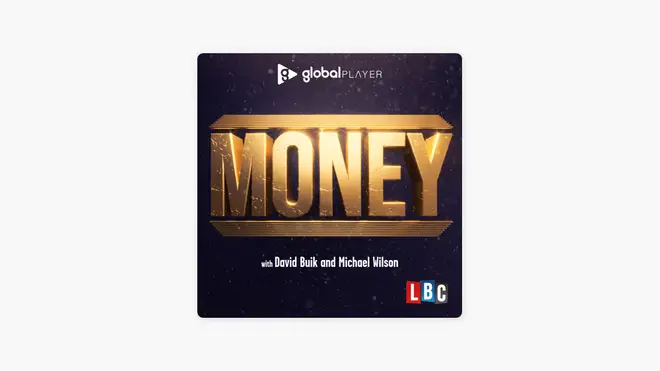
Shelagh Fogarty 1pm - 4pm
30 April 2024, 15:20 | Updated: 3 May 2024, 15:16

When a huge merger/acquisition deal manifests itself, I often think it is worthwhile going back over the history of the respective ‘dramatis personae.’
Last week’s announcement by BHP, the Australian mining titan, of its intention to scoop up Anglo American, its South African competitor ‘on the cheap’ for circa £31 billion, is a classic example of why investors and onlookers might enjoy ‘having the drains up.’
If consummated, this ‘mergers and acquisitions’ deal involving UK companies is not as big as the $208 billion merger between Vodafone and Mannesmann in 2000, but it is certainly the largest in the last decade.
Last Thursday BHP made an offer of £25.08 per share to Anglo's shareholders, a premium of 31% to the market close on the previous Wednesday, sending the London-listed target's shares up by 16%.
Most cognoscenti probably consider BHP to be not only the world’s largest mining company, but also the best operator in this sector. Since their respective public quotation, BHP shares have risen by 1145.97% since July 1997 against Anglo-American’s have increased by 260.62% since June 1999. This data also includes acquisitions.

BHP started out life in Australia as The Broken Hill Proprietary Company, which was founded in 1885. It merged its business with Billiton, the Anglo-Dutch miner in 2001.
Then in 2022, BHP Billiton was delisted in London, after some BHP Billiton assets were demerged in 2015, and a scaled-down BHP Billiton became BHP. Its main mining interests involve iron ore, metallurgical coal, copper, and nickel and in recent years BHP has moved into potash.
BHP substantial growth has been built around unprecedented growth in China, the largest user of metallurgic ores in the world.
Anglo American Corporation was formed by Ernest Oppenheimer in 1917 in Johannesburg, with financial backing from the American bank JP Morgan and £1 million raised from UK and US sources to start the gold mining company.
It is the world's largest producer of platinum with around 40% of world output, as well as being a major producer of diamonds, gold, copper, nickel, iron ore and steel making coal.
Anglo operates in Africa, Asia, Australia, Europe and North/South America. De Beers of global diamond fame, which is owned 85% by Anglo American and 15% by Botswana, is probably one of the jewels in Anglo’s crown.
Last Thursday, Ken Mackenzie Chairman and Mike Henry CEO of BHP popped their heads above the parapet and offered Anglo American shareholders £25.08 per share, a premium of 31% to the market close on Wednesday, sending the London-listed company’s shares up 16%.
Stuart Chambers, Anglo’s Chairman responded on behalf of CEO Duncan Wanblad the directors and shareholders that the offer was wholly inadequate.
He said that "The BHP proposal is opportunistic and fails to value Anglo American's prospects, while significantly diluting the relative value upside participation of Anglo American's shareholders relative to BHP's shareholders."
BHP’S proposal included a condition that Anglo first distributes to shareholders its stakes in Anglo American Platinum and Kumba Iron Ore, both of which operate in South Africa where BHP has no assets.
De Beers would be a key part of the trade. There are also questions about jurisdictional risks in South Africa and other regions and concerns that Anglo American's businesses are lower margin than BHP's.

The market feels that BHP will have to up its price if it wants to stand a realistic chance of landing the spoils. Valuations of UK companies have been at a considerable discount to similar companies in the US.
Many observers have felt that Anglo-American may have had ‘too many fingers in too many pies’ and consequently it has failed to focus on its core business.
Hence the shares in recent years have underperformed some of their peers. Anglo has sold several non-core businesses such as Mondi in 2007 and Lafarge Tarmac in 2013.
Anglo-American is now leaner and more focused. So, the market believes that BHP will need to raise its bid to nearer £40 billion to win over shareholders. The operations are clearly synergistic, with Anglo’s strength in copper, diamonds, and gold likely to prove complimentary. I would be surprised if Elliott Investment Management’s 2.6% stake in Anglo did not voice an opinion.
There have been relentless attacks by private equity to buy cheap assets in the UK. In recent weeks companies such as DS Smith, Wincanton, Hipgnosis and Spirent Communications. In recent weeks Curry’s and Direct Line have valiantly fought off predators. However, predators will return to these shores. Their appetite is insatiable.
Even some of the UK flagship companies look vulnerable - BP, Unilever, BP, Reckitt Benckiser, Standard Chartered, Entain and Burberry all look as cheap as chips. Shell’s CEO let it be known that he felt that the oil titan was undervalued and unloved.
For Shell or Unilever to be delisted in the UK would be a disaster for the City’s reputation. Other targets under consideration include Dr Martens and Aston Martin.
The UK Government has been totally pre-occupied by the fallout from Covid and the adverse reaction to the damage caused by Truss’s perceived uncosted 2022 budget.
It has failed to attract inward investment by refusing to provide adequate incentives. Perhaps a deal of this size and nature will provide the missing momentum required to reignite corporate activity in the UK.
LBC Views provides a platform for diverse opinions on current affairs and matters of public interest. The views expressed are those of the authors and do not necessarily reflect the official LBC position. To contact us email views@lbc.co.uk